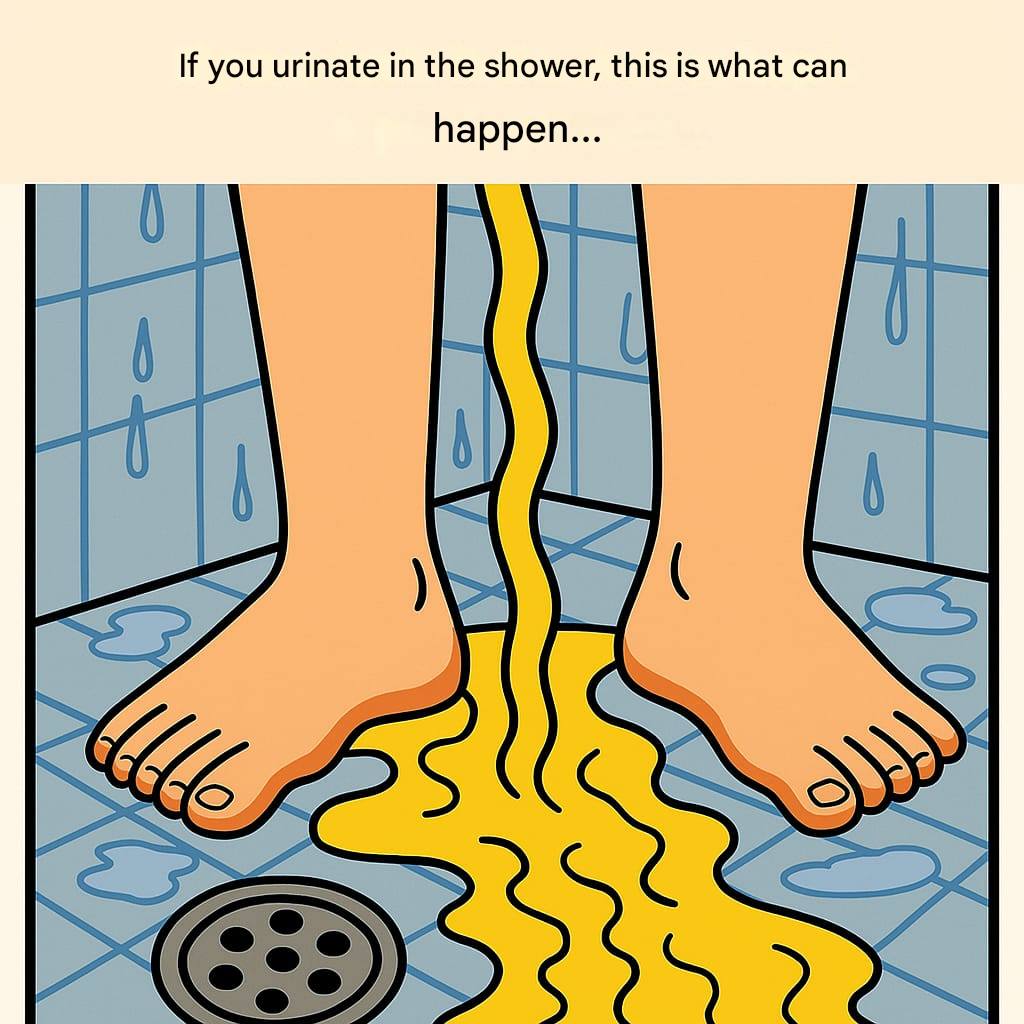Some experts warn that habitual “shower‑peeing” may train your body to associate running water with the urge to urinate. That could lead to sudden urges in inappropriate situations. Hindustan Times+1
3. Hygiene, courtesy & environment — especially in shared or public showers
If you share your shower with roommates or family, what feels convenient for one may feel gross for another. Even if the risk of infection is low, many people simply prefer not to. Yahoo+1
In public showers (gyms, dorms, etc.), hygiene becomes even more uncertain — increased exposure to bacteria or fungi, and damp shared surfaces may raise risk. Health+1
4. Potential for “bad habits” and bladder mis‑coordination
Frequent shower‑urination can lead to a kind of conditioned response: hearing running water might make you feel the urge to pee — even when your bladder doesn’t need emptying. Over time, that may interfere with normal bladder‑brain signaling. The Times of India+1
Moreover, if you don’t fully relax while urinating (common when standing), you may not empty your bladder completely — which can lead to residual urine, potentially increasing risk of infections. SELF+1
🧪 What Science Actually Shows (So Far)
-
A 2025 article from the Cleveland Clinic stated that for most healthy people, peeing in the shower while water runs is medically fine — no major health risk. Cleveland Clinic
-
However, many pelvic‑floor specialists caution that standing urination over a long period can strain pelvic muscles, raising risk of incontinence or overactive bladder. SELF+1
-
Infections are uncommon, but possible — especially if someone has a urinary tract infection (UTI), or if the urine comes into contact with cuts or mucous membranes. Cleveland Clinic+2maidenlanemedical.com+2
-
Hygiene and respect for others (housemates or public‑shower users) remain relevant — just because something isn’t dangerous doesn’t mean it’s always socially acceptable. Yahoo+1
🧩 So What’s the Bottom Line?
| WHEN you pee in the shower | Risk Level / What to Watch | My Take |
|---|---|---|
| At home, alone, water running, good hygiene | Generally low risk — likely safe if rare | Probably fine now and then |
| If you have a UTI, open wounds, or weak pelvic floor | Higher risk of irritation, incomplete emptying, or pelvic strain | Best to avoid |
| Frequent habit over years | Risk of pelvic‑floor weakening, bladder issues, conditioned urges | Might lead to long-term problems |
| Shared or public shower | Hygiene concerns, courtesy issues, potential germ exposure | Better to skip |
In short: Shower‑peeing isn’t magical or deeply “bad” by default — but it’s not without its trade‑offs. If you treat it as a rare convenience and keep good hygiene, it’s unlikely to harm you. But if it becomes a habit, especially in situations of shared bathrooms or preexisting bladder/pelvic issues — it could contribute to problems.
✅ Practical Advice if You Still Choose to Pee in the Shower
-
Only do it if you’re alone or with consent — especially in shared homes.
-
Make sure the water is running so urine dilutes and drains. Avoid letting urine pool on the shower floor or grout.
-
Clean your shower regularly (once a week at least) to prevent build‑up or bacterial growth.
-
Be especially cautious if you have UTIs, cuts, or pelvic‑floor weakness — better to use the toilet.
-
Avoid doing it if you notice frequent bladder urgency, leakage, or discomfort — these may be signs your pelvic floor is being strained.
-
If you repeatedly feel “the urge” when hearing running water — that may indicate a conditioned response. Try retraining habits (sit on toilet, wait for the urge, don’t respond to triggers).
🧠 Final Thoughts: More Nuance Than Headlines
The viral image that claims peeing in the shower can lead to “3 diseases” seems to exaggerate the risk. There’s no strong evidence that occasional shower‑urination in healthy people causes serious illnesses, as long as you maintain basic hygiene. SELF+2Cleveland Clinic+2
Still — the warnings from pelvic‑health experts are worth paying attention to. Over time and especially in certain contexts, shower‑peeing can contribute to bladder problems, pelvic‑floor stress, and hygiene issues. SELF+2The Times of India+2
If you’d like — I can draft a full FAQ‑style article on “Is it OK to pee in the shower?” — summarizing all common questions, health expert opinions, and practical dos & don’ts.

